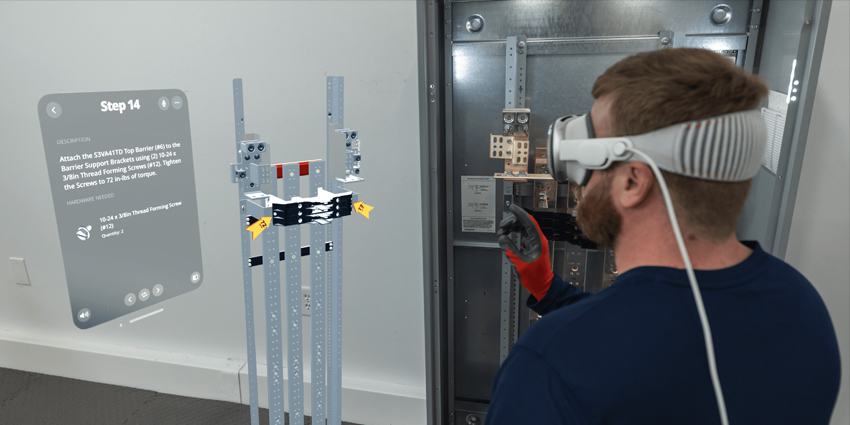Extended reality (XR) has gained a lot of attention over the last few years. Companies worldwide have begun investing in virtual, augmented, and mixed reality (VR/AR/MR) solutions. Questions on whether investing in XR will pay off reveal the brutal truth: XR is not right for every business.
Firms should assess their situation before investing in XR. While many firms invest in their digital transformations, they must include the right technologies for their goals. Despite some concerns, the XR market is estimated to reach over $1 trillion by late 2030, according to P&S Research.
Is Demand for XR Growing?
According to figures, companies invested roughly $4.1 billion in VR and AR solutions, indicating an upward trend in demand for XR technologies.
Companies worldwide are developing an increasing number of use cases for XR, with many achieving success in immersive training, research and development (R&D), virtual collaboration, entertainment, and remote guidance, among others.
A Hire Intelligence study suggests that 45 percent of XR headsets have been deployed for educational purposes, with 90 percent of British teachers recognising demand for immersive classroom tools.
XR Use Cases
Companies such as NVIDIA have begun partnering with Siemens to create digitally-twinned factories for major manufacturers, where remote workers can monitor issues with the entire facility in real-time.
Other XR firms like Varjo Technologies, Autodesk, and even PDF pioneers Adobe have entered the Metaverse to empower companies with collaborative platforms, leveraging Autodesk’s VRED computer-aided design (CAD) platform.
Regarding the AR space, firms like Vuzix have been leading the market with its M-400 series smart glasses, which provide remote guidance tools with bespoke visualisation platforms for first responders.
Regarding the classroom, Meta’s Quest 2 and Meta Quest Pro headsets are leading the market for educating learners across subjects, including science, maths, history, and engineering.
Meta’s latest headset is competing with major players such as the Pico 4 and Pico 4 Enterprise. There are also HTC VIVE’s Focus 3 and Flow Enterprise headsets. Microsoft’s HoloLens 2 also remains an industry heavyweight in the rivalry for the classroom and enterprise.
Lenovo has also targeted the enterprise with a stellar VR solution, the ThinkReality VRX, which aims to boost workplace efficiency and training with an agile, flexible immersive solution built for businesses.
Implementing XR Timelines
Despite the difficulties in entering the XR world, timing is everything to becoming a contender. Like most disruptive technologies, it is difficult to transform a company with XR overnight.
To fully embrace XR in an enterprise, it is crucial to consider how to incorporate several issues. Firms must evaluate the technology carefully, how it will benefit from XR, and plan accordingly.
Capgemini Research says that 82 percent of companies using XR stated it met or exceeded expectations. Companies like Boeing discovered they could reduce wiring production time by 25 percent. This is after replacing assembly manuals with smart glasses.
The key to successful XR strategies is considering where employees may face the biggest hurdles. AR smart glasses can reduce equipment downtime by eliminating searching for manuals and offering remote guidance. VR training significantly reduces educational costs and boosts outcomes rapidly with on-demand, bespoke, and measurable courses.
Such successes can rapidly upskill new hires and cut the number of injuries at the workplace. XR’s potential to prepare learners for their occupational responsibilities can help realise these results.
XR on the Rise
Although not every company will prepare for XR, most cannot afford to ignore this new technology. XR solutions are becoming increasingly valuable in strategic use cases. They will allow companies to differentiate themselves with innovative approaches to problem-solving.







